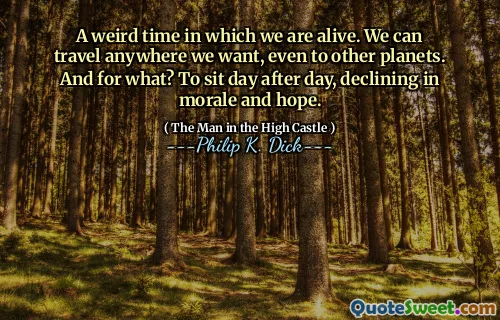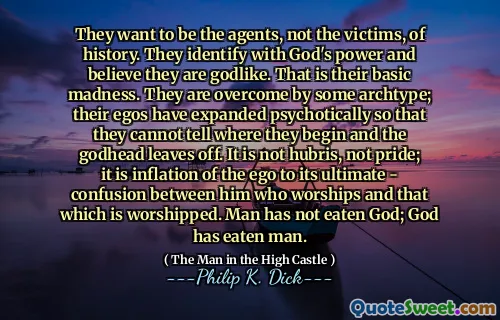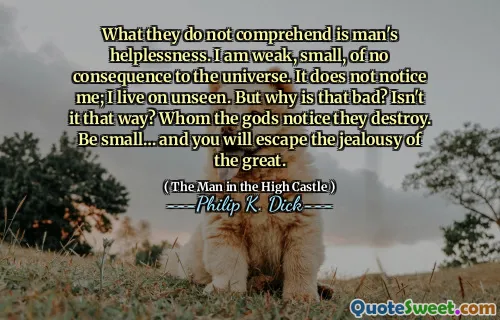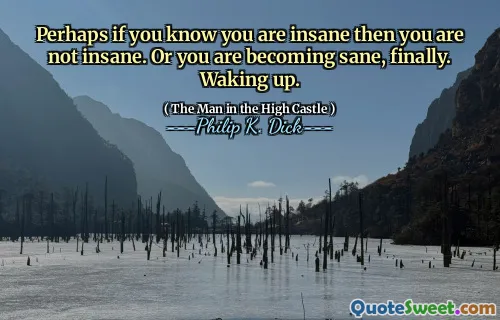
They know a million tricks, those novelists. Take Doctor Goebbels; that's how he started out, writing fiction. Appeals to the base lusts that hide in everyone no matter how respectable on the surface. Yes, the novelist knows humanity, how worthless they are, ruled by their testicles, swayed by cowardice, selling out every cause because of their greed - all he's got to do is thump on the drum, and there's his response. And he's laughing, of course, behind his hand at the effect he gets.
In "The Man in the High Castle," Philip K. Dick presents the notion that novelists masterfully manipulate human nature, exploiting deep-seated desires that lurk beneath a facade of respectability. He uses Doctor Goebbels, a notorious figure, as an example of someone who began his career in fiction, hinting at the power of storytelling to evoke primal instincts. According to Dick, novelists wield a profound understanding of humanity's flaws, such as greed and cowardice, recognizing how easily people can be swayed by their base instincts.
Dick suggests that the novelist's skill lies in their ability to tap into these hidden motivations, illustrating how they can provoke strong reactions by simply appealing to the darker aspects of human nature. The image of the novelist "laughing behind his hand" hints at a certain manipulation of their audience, highlighting a complex relationship between creator and consumer. This insight into the psychology of narrative reveals a commentary on the darker side of storytelling and its potential influence over society.






